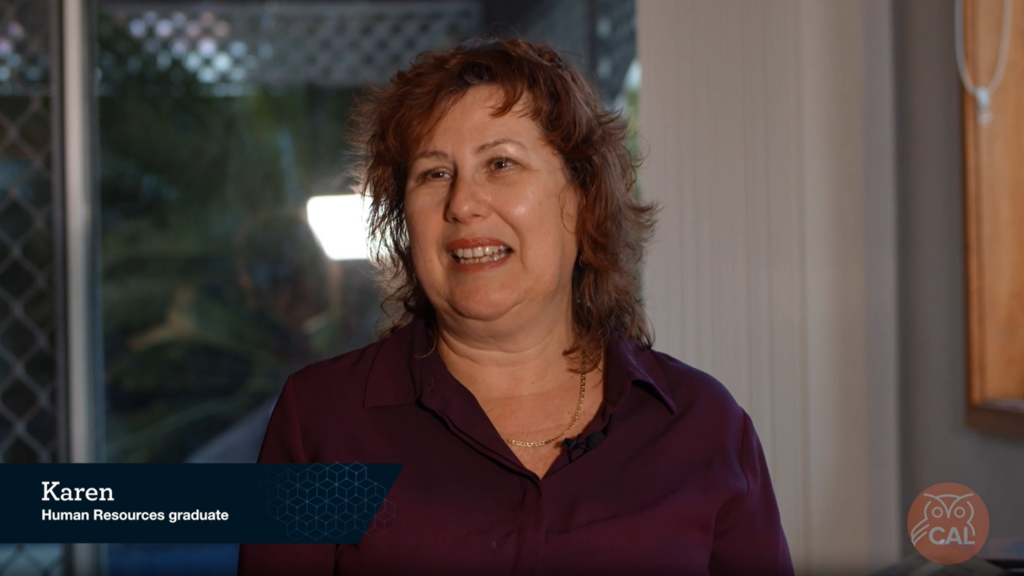
When conversations about organisational development begin at a managerial and board level, it’s generally a positive sign. At this point, a business is in a position to reflect upon its achievements and look towards taking ‘the next step’. Conversations cover team building, career development, staff coaching and training, and developing talent and leadership to ensure the business is in the best position possible to forge ahead.
What is organisational development?
Organisational development (OD) is a process and practice that has roots back to the 1940s and falls under the umbrella of human resources (or HR). Organisational development, however, is far more focused on people than the old model many of us associate with HR.
Recent research shows that more than 90% of employees consider appropriate training programs a positive way of increasing their engagement in the workforce. Interestingly, half of Gen Z employees are more likely to engage with training material than previous generations. In other words, it’s clear that properly defining future employment paths and providing the training to achieve them will help retain the most valuable members of any given workforce.
What’s the difference between organisational development and human resources?
It wasn’t until the late 1800s that scholars and governments realised employee wellbeing was good for business. The term ‘industrial welfare’ was coined to acknowledge that valuing people as a long-term resource was necessary. Moreover, it could result in loyalty and longevity of tenure.
Even so, it took another half a century before legislation impacting equal pay and civil rights put the onus on businesses to implement such measures. This was the birth of what would become human resources.
Since the 1960s, and most notably in the past decade, that philosophy has taken a quantum leap into an area we now term organisational development. OD focuses on how a business wishes to manage its workers. Essentially, OD moves beyond viewing employees only as a ‘resource’ and strives to create a holistic people-centric approach.
In short:
- Human resources focuses on hiring, onboarding, performance management, redundancies, and processes relating to personnel.
- Organisational development concerns planning, change management, developing leaders and identifying opportunities for personal employee growth. It’s a more human way of doing business than simply ticking operational boxes.
Download our FREE HR Career, Salary & Course Guide!
Find valuable information on why you should become a HR manager, which HR department suits you, a detailed salary guide, course breakdown and more!
Organisational development manager vs human resources manager
A human resources manager oversees recruitment, hiring and processes that involve staff members. Most HR Managers plan, direct and manage the employee management and administrative functions of the company. Principally, they find and nurture the right talent needed to achieve the strategic goals of a business. The HR manager provides a link between management and employees.
From here, an organisational development manager ensures employees have the conditions to thrive in the workplace for the long-term benefit of both the individual and the business. They are responsible for an organisation’s change and people management and may be focused on developing and implementing workplace policies and procedures for sustainability, as well as employee and financial growth.
What skills does an organisational development manager need?
- Leadership. All managers, no matter their specialty, must be good leaders. Leadership skills are central to an OD professional’s role and their influence is business-wide.
- Empathy. An ODM will shape and implement policies that apply to all employees and needs an understanding of people.
- Business sense. You’ll need to develop appropriate workplace policies and procedures within allocated budgets, continuously monitor progress and improve processes.
- Communication. Communicating and managing team effectiveness is critical while encouraging others to acquire and practice similar skills.
- Innovative thinking. The more innovative an OD manager is, the more likely they will lead a business towards best practice models that keep employees happy and engaged, thereby reducing costs.
- Strategic planning. In modern workplaces, it’s necessary to factor in sustainability in terms of environmental, financial and social impacts.
What can I expect as an organisational development manager?
Given the pace of change in our modern business world, an ODMs role is becoming ever more critical. The so-called ‘Great Resignation’, referring to large numbers of workers now leaving their jobs (or careers) in the wake of the COVID-19 pandemic, is a case in point. Every lost employee will add costs to a business relating to recruitment, onboarding and training.
One of the challenges for an OD professional is developing policies and initiatives to reduce this ‘churn’ rate and lower costs. Some other trends and challenges ODMs need to be aware of are:
- The impact of AI on learning
- A greater focus on continuous development rather than ‘one-off’ procedural changes
- Roughly half of Millennials and Gen Zs make work choices to align with their values, meaning an increasing focus on employee engagement
- Increasing digital processes may cause some employees to fear for their future employability
Your Career in Human Resources
Do you want to learn more about HR skills employers demand, emerging job roles and salaries, and recent industry insights?
Discover your career in human resources.
HUMAN RESOURCES CAREER PAGE
Organisational development manager salary
The average salary for a qualified OD professional in Australia is approximately $134,000 to $182,000, depending on your experience.
How do I become an organisational development manager?
You can learn the necessary skills and knowledge as part of a Diploma of Business (Organisational Development) (BSB50120) or as a Double Diploma with a Diploma of Leadership & Management (BSB50420).
Once qualified, focus on finding a job in a business that aligns with your interests. Initially, that may not be an HR or OD role. However, learning the ropes while staying focused on a dream role is a great start. Identifying opportunities to implement organisational policies or improve existing ones will put you on any business leader’s radar for promotion. Getting certified and joining a professional association will also help develop your skills via contacts and mentorship. Continuous improvement will open up opportunities to create the career of your choice.
In summary, organisational development might be considered the HR of the future. The entire premise, while rooted in practices of old, is light years beyond its origins. The old-school idea of using workers as dispensable commodities isn’t only wrong – it’s expensive for business. A modern workplace understands that happy workers are productive workers. An OD professional is at the helm, ensuring this is the case.
A career at the forefront of organisation development is immensely satisfying. Going home at the end of a workday knowing that what you’ve done has helped people learn and be happy is an excellent feeling. If job satisfaction counts, then organisational development is undoubtedly a career worth pursuing.
Discover your career in organisational development
Explore courses designed to help you take your career to the next level!
If you’re ready to expand your career, an organisational development and business course can help make that happen.
View courses





